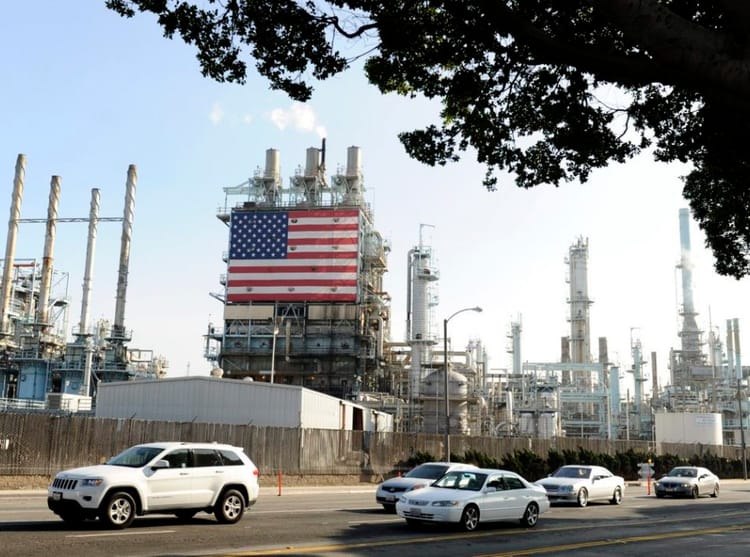An "Unabated" Disaster

Last month, COP28 president, oil CEO Al Jaber unveiled his "action plan" for this year's climate summit. Amidst a lot of big talk about fossil fuel phase down was one little word that puts the lie to all of it: "unabated." Whenever Al Jaber makes a commitment to moving the world away from fossil fuels it comes with this caveat. "Unabated" refers to fossil fues that don't have carbon capture or direct air capture associated with them. The idea being that those emissions are being taken care of, so no problem. Except...the data on these technologies is far from conclusive about their capacity to "abate" anything but fossil fuel companies' responsibility to do anything at all about climate change.
In case there was any doubt about that, Occidental Petroleum CEO Vicki Hollub has been saying the quiet part out loud. "We believe that our direct capture technology is going to be the technology that helps to preserve our industry over time,” Hollub told an oil and gas conference in March. “This gives our industry a licence to continue to operate for the 60, 70, 80 years that I think is going to be very much needed.”
Emissions abatement technologies are, of course, a worthy endeavor. We would all love to have a magic vacuum that sucks greenhouse gas emissions out of the sky. But overstating the technology's capability today only locks us into more pain and suffering tomorrow. Moreover, when scientists talk about DAC as a helpful technology—and they do! yay!—it is always, always with a very important caveat: it will only work to mitigate climate impacts if emissions are reduced first. As scientist David Ho put it in the journal Nature, "Drastically reduce emissions first, or carbon dioxide removal will be next to useless."
Ho is not just a scientist with an opinion. He has spent his entire career studying carbon cycles, and was a reviewer for the much ballyhooed Musk Foundation-funded $100 million Xprize for Carbon Removal. He's bullish on carbon dioxide removal. But also knows that it will only work if it goes along with rapid decarbonization.
"Carbon dioxide removal (CDR) is what puts the ‘net’ into ‘net zero emissions,'" Ho continues. "All pathways to limit global warming to 1.5–2 °C above pre-industrial levels that have been assessed by the Intergovernmental Panel on Climate Change require rapid decarbonization to start now. But they also require the removal of CO 2 from the atmosphere because we won’t be able to eliminate carbon emissions entirely on the required time scales."
That is not the plan that oil execs, including Al Jaber, are pushing. Instead, the plan is to continue ramping up fossil fuel development, and use DAC and even less-proven carbon capture and storage technologies (CCS) to justify it. It's an approach that makes carbon dioxide removal technology a complete waste of time and money. At 2022 emissions leavel, for every year of operation at full capacity, each currently planned DAC hub would take us back in time about 13 minutes. "But in the time it took to remove those 13 minutes of CO 2 ," Ho points out, "the world would have spewed another full year of CO 2 into the atmosphere."
If, however, we reduce emissions to around 10% of current levels, it would take 4,000 facilities to reach net zero in any given year, presuming they were fully powered by renewable energy. Which brings us to another key issue with currently available carbon removal options: in the absence of an energy transition, they will be an additional emissions source.
None of this is just one scientist's opinion, nor does it boil down to the "activists versus businesspeople" dichotomy it's often framed as. This is basic, objective data that is readily available and entirely known by the fossil fuel executives pushing this "solution."
And yet, here we sit with an "action plan" from Al Jaber that's looking increasingly reliant on a CDR-first approach, and now a draft plan from EU negotiators that shows them teetering on the edge of this "unabated" fantasy as well.
"The shift towards a climate neutral economy will require the global phase-out of [unabated] fossil fuels and a peak in their consumption already in the near term," a draft of the EU's negotiating stance, seen by Reuters, said.
The appearance of the word in brackets indicates that negotiators aren't yet sold on the idea, but it's concerning to see negotiators from the countries that have pushed hardest for real decarbonization already entertaining this idea. If the deal out of COP28 leans heavily on phasing out only "unabated" fossil fuels, lending undue credence to the idea that putting the CDR cart before the decarbonization horse, not only will it set the world on track for devastating climate impacts, but also it could undermine another tool in the accountability toolbox: the many court cases aiming to hold governments accountable for sticking to their Paris Climate Accord commitments could be severely weakened by a new deal that allows everyone to drill and frack and burn away, provided they also invest in tech that could buy us 13 minutes.
This Week's Climate Must-Reads
- Our Green Transition May Leave Black People Behind It's been infuriating to watch the climate movement, which only just started to scratch the surface of pulling its head out of its ass on racial equity a few years ago shove it right back up there amidst discussions of the IRA and permitting reform. The always brilliant Rhiana Gunn-Wright lays out what's been happening and why it's not just hurtful and gross but also a losing strategy on climate.
- A Dangerous Debt-Climate Nexus In a warming world, technocratic fixes are inadequate responses to vulnerability, Ketaki Zodgekar, Avery Raines, Fayola Jacobs & Patrick Bigger write in a new report in NACLA. Achieving climate and economic justice in the Caribbean calls for reparative solutions.
- The Long, Slow Death of Global Development - An old one but David Roberts resurfaced this on Twitter the other day and I finally read it and hoo boy is this long read from David Oks and Henry Williams in American Affairs a good one to prep for a COP that is pitting development funding against climate mitigation, adaptation, and reparations.
- A Progressive Take on Permitting Reform - Technocrats have been accusing progressives of being naive and stubborn when it comes to permitting reform. A new report from the Climate and Community Project makes it clear that we can do everything necessary to clear the way for more renewables while also being equitable to frontline and Indigenous communities. Johanna Bozua breaks it down on the latest episode of the Volts podcast as well, and the Roosevelt Institute has a great take on this from Rhiana Gunn-Wright as well. There's a clear path forward, it's just not the one that coal baron Joe Manchin likes.
- Searching for Utopia in Our Warming World - Whenever people ask me about solutions in climate and what gives me hope, I have the same answer: community. I find hope in the way I've seen communities on the Gulf Coast fight off petrochemical facilities, in the way I see people in the climate community look out for each other, in the way I've seen people in my own small neighborhood check in with each other when there's a bad storm. Community isn't just necessary for solutions, it's also an absolute requirement for survival as climate impacts continue to worsen. For Noēma, Mélissa Godin reports on a new kind of community emerging—eco villages, where where neighbors share responsibilities like farming and childcare in the search for a more sustainable existence.





